Eleanor Roosevelt Stands Up for Big “D” Democracy.
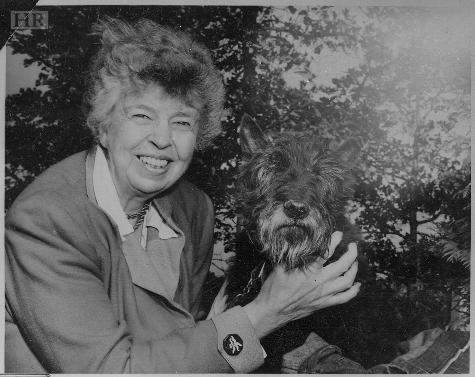
Her famous uncle, Teddy Roosevelt, called the White House, the “Bully Pulpit”, a terrific platform to advocate an agenda. Anna Eleanor Roosevelt would use that pulpit to fight for equal rights for millions of Americans who, up until then, had been left out.
Lucky and unlucky in relationships, it was her uneasy relations with Franklin’s mother that would keep FDR in politics after he contracted polio while on vacation on Campobello Island in New Brunswick, Canada. Sara Franklin had opposed the marriage to Franklin, a fifth cousin. Franklin Roosevelt had already served as a New York state senator and as an Assistant to the Secretary of the Navy. He had also run on the 1920 ticket as James Cox’s vice president. After contracting polio, his mother Sara wanted Franklin to just become a country gentleman, but Eleanor wanted him to remain in politics. This decision helped make Eleanor one of the most influential first ladies in American history; her influence improved the lives of millions of people in America and around the world.
An Intellectual First Lady: 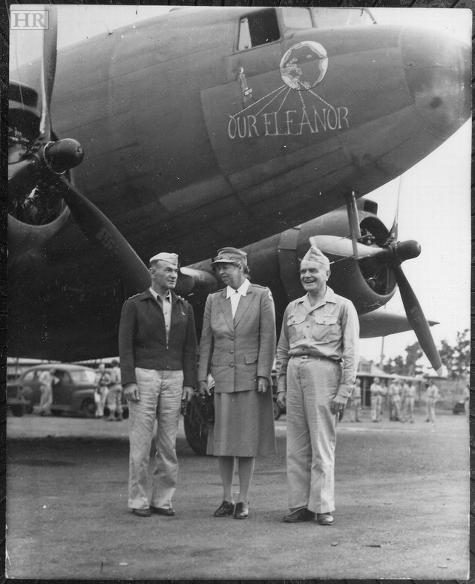
Eleanor sought to expand her influence by writing a column each day in the newspapers. She wrote “My Day” which ran daily for 26 years and discussed issues facing women and others in America. She was considered a disciplined and brilliant writer who was always thinking about what Democracy really means and wanted to give people the information they needed.
After FDR contracted polio, Eleanor became his eyes and ears. With World War 2 raging,Eleanor would board a DC-3 for the long flights to the Pacific to visit wounded soldiers. During one of her trips, she walked 50 miles of hospital floors visiting them.
Considered one of the most controversial first ladies in America’s history, Eleanor survived 15 attempts on her life and refused to have the Secret Service in the White House. She also had gun permits issued everywhere she travelled. New York cops often protected her.
A Reporter’s Influence: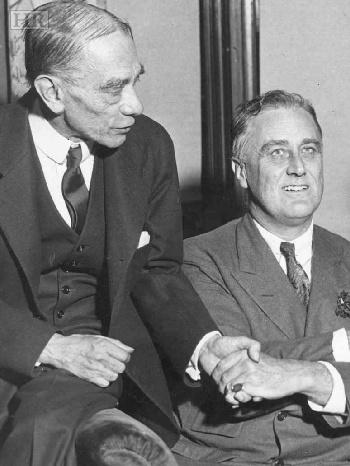
Louis McHenry Howe was a newspaper reporter for the New York Herald when he first met FDR. Roosevelt was then a New York state senator. Howe interviewed Roosevelt for the Herald and they became friends in the process. FDR hired Howe to manage his next political campaign which Roosevelt won. He then brought Howe on as his chief of staff when FDR was appointed as the Assistant Secretary of the Navy under President Woodrow Wilson. It was at this time that Howe began building a national campaign for Roosevelt and began encouraging Eleanor to become involved in politics. Louis Howe became the man behind the Roosevelts.
Eleanor initially disliked Howe, but in the course of the campaigns, they became friends. Howe coached her on how to talk to reporters. Howe’s coaching helped Eleanor tremendously in Washington when Eleanor made appearances for FDR and held, not several, but 348 of her own press conferences. Eleanor had another close friendship with Associated Press reporter, Lorena Hickok. As a result of this friendship, Eleanor cleverly placed a ban on male reporters attending her press conferences which forced newspapers to keep female reporters on staff to cover them.
In later years, Eleanor said of Howe: “I learned that Louis had always liked me and thought I was worth educating. Largely because of Howe’s early interpretation of the standards and ethics of the newspaper business; I came to look with interest and confidence in the writing community.”
The Universal Declaration of Human Rights:
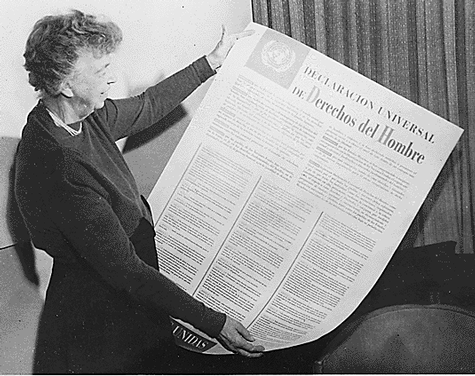
In 1941, FDR made what was called the Four Freedoms Speech in which he looked forward to a world founded on four human freedoms: Freedom of Speech and Expression; Freedom of Worship; Freedom from Want; and Freedom from Fear. Out of this speech grew an extension of the United Nations Charter which “reaffirmed faith in fundamental human rights, and dignity and worth of the human person.” The Universal Declaration of Human Rights was the first global expression of rights to which all human beings are inherently entitled. It was Eleanor who strongly campaigned for it to be considered a declaration and not a treaty. The declaration took on the force of international law and 56 countries of the United Nations General Assembly voted in favor of it. The Universal Declaration is celebrated each December 10th and is known as Human Rights Day.
Eleanor Roosevelt, 32nd First Lady of the United States, believed profoundly in the promise of Democracy and worked tirelessly to deliver on that promise. Eleanor was always pushing the envelope.
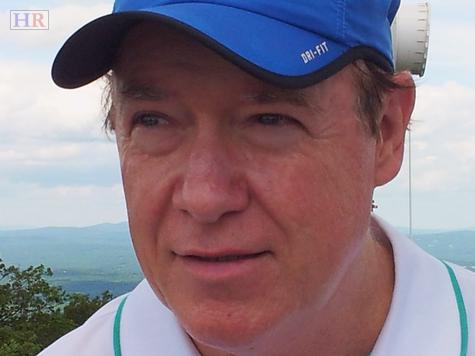 Charles Collie is a former reporter for a CBS television station in Ohio. Charlie and his family moved to Holliston in 1995. He is semi-retired and still enjoys writing about politics and current events.
Charles Collie is a former reporter for a CBS television station in Ohio. Charlie and his family moved to Holliston in 1995. He is semi-retired and still enjoys writing about politics and current events.
Charlie is going to Hyde Part to visit and asked me if he could bring back something for me. I told him to bring back FDR. We need him.
Paul | 2014-06-26 14:38:45
Great article on a very great woman! Will look forward to more. Our young women - as well as young men- need role models like Eleanor.
Susan Plume | 2014-06-26 11:49:20
Once again I was delighted to read this interesting article. I knew that Eleanor was a force but not to that extent. Thank you again Charlie. Mary
Mary patch | 2014-06-23 11:53:56
Great stuff, Charlie, keep it coming.
tpartynitwit | 2014-06-23 06:37:40